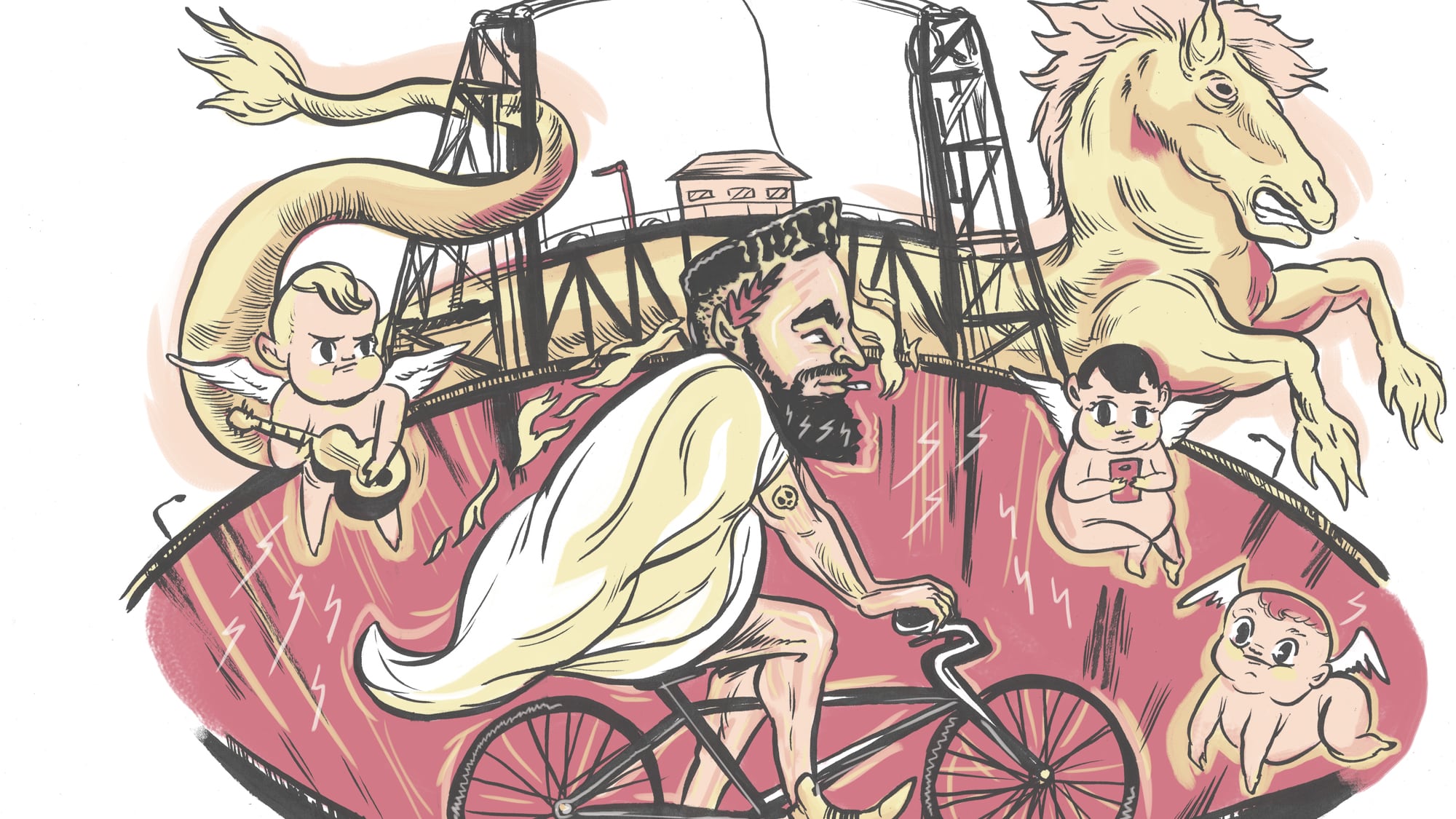In our city, bikes win.
At least, that's what we like to tell ourselves.
It's no secret that Portland thinks of itself as America's bicycle mecca. More than beer, coffee or cannabis, cycling is where we take the greatest pride—we even stamp images of bikes on license plates, accompanied by our unofficial civic slogan, "Share the Road."
But lately, Portland's bike culture has felt like it's got a wheel stuck in the MAX tracks.
Sure, we still have more bike commuters per capita than anywhere else in the United States. But those percentages have stagnated over the past decade, even as our clogged freeways become an increasingly compelling argument for rethinking the entire Industrial Revolution. We've voted for tax bills that have pumped money into the city's transportation budget, but major infrastructure projects remain mired in bureaucracy. For many years, Bicycling magazine ranked Portland as the country's most bike-friendly city; in its most recent survey, we've fallen to third, behind Chicago and—shudder—San Francisco.
That might not seem so bad. And yeah, we're still, by many measures, a very good bike city. But when it comes to bikes, in Portland, "good" isn't good enough.
To borrow a phrase, it's time to make biking great again.
Don't worry. There is reason to believe Portland's bike renaissance is upon us. And as we've outlined in this year's Bike Issue, it goes back to that concept cyclists have turned into a rallying cry—sharing the road. Only now, it doesn't just mean with other forms of transportation but with each other.
One of the drawbacks of being a hardcore bike-riding community is the perception that you have to be a hardcore rider. In some ways, Portland has perpetuated that idea. As cyclist Keyonda McQuarters tells us, when she moved here from Chicago, the culture felt closed off: "The upper-class, middle-aged white men with their $2,500 bikes, they're not looking for me."
But Portland's bike scene is beginning to open up to more than just the MAMILs—that is, "middle-aged men in lycra."
McQuarters reactivated the local chapter of Black Girls Do Bike, joining several organizations working to diversify Portland cycling. Biketown still has its issues, as one of our writers discovered after using the bike share program for a year straight, but it's democratized bike commuting for a population that never thought it was for them. Mountain bikers, who've long felt put off by Portland's proclamations of bike supremacy, finally have a playground of their own, and even the pros are stoked. And to our surprise, when we asked avid cyclists for their favorite secret bike paths, it didn't take any bribes to get them to give up the goods.
When it comes to restoring Portland's bike prominence, we know there's a will—the week we spent sampling local spin classes proves Portlanders love cycling even when it doesn't take them anywhere. And there is a way: According to one advocate, the city now has enough in its coffers to turn Portland into the American Copenhagen.
But one thing's clear: None of it will matter unless everyone is invited along for the ride. Thankfully, the road in front of us looks wide open.

Welcome to the 2018 Bike Guide.
I Spent a Year Using Biketown to Commute. Here Are My Observations.
The Best New Bike Gear as Recommended by Local Bike Shops.
A Professional Mountain Biker Assess Gateway Green, Portland's New Fat-Tire Playground.
I Spent a Week Going to Portland Spin Classes. Here's What I Learned.
Five Portland Cyclists Share Their Favorite Secret Rides.
Already Conquered Portland? Give These Vancouver Bike Rides a Try.
Keyonda McQuarters Didn't Feel Welcome in Portland's Bike Community. She's Working to Change That.
Five More Groups and Organizations Working to Diversify Portland Cycling.

